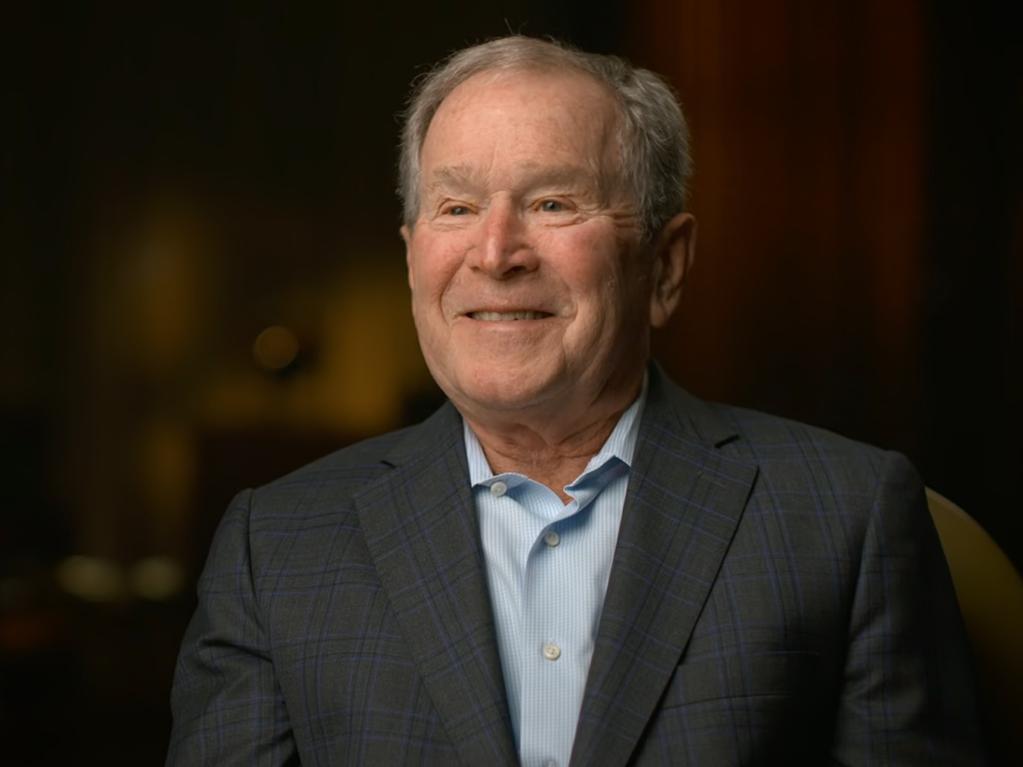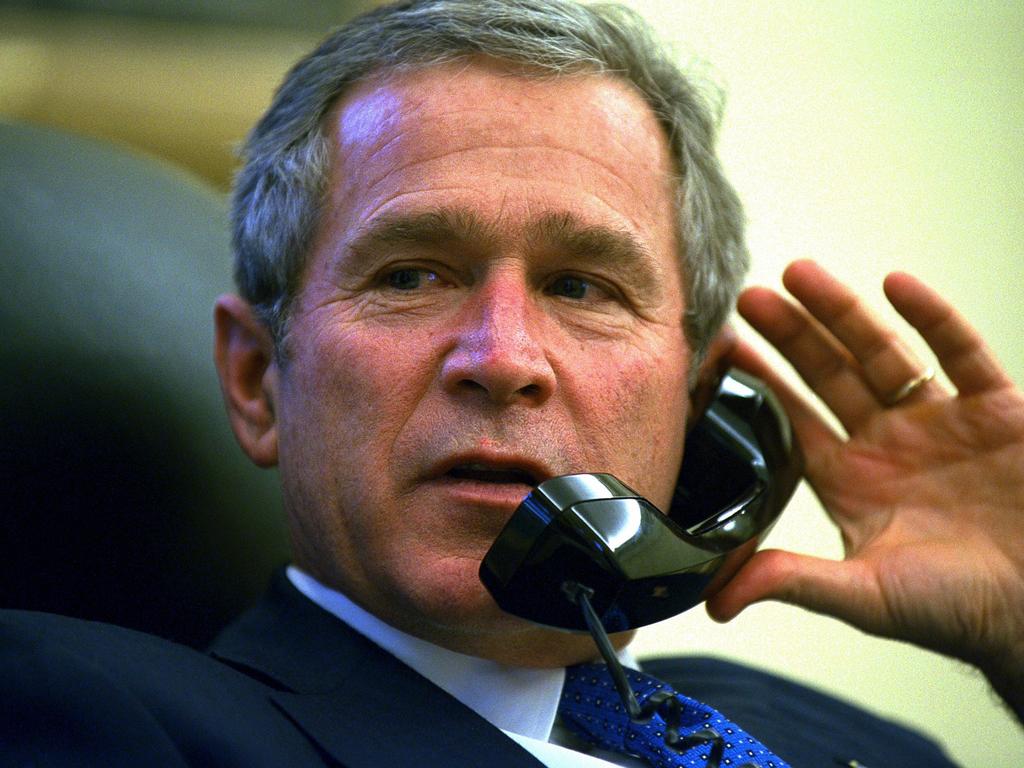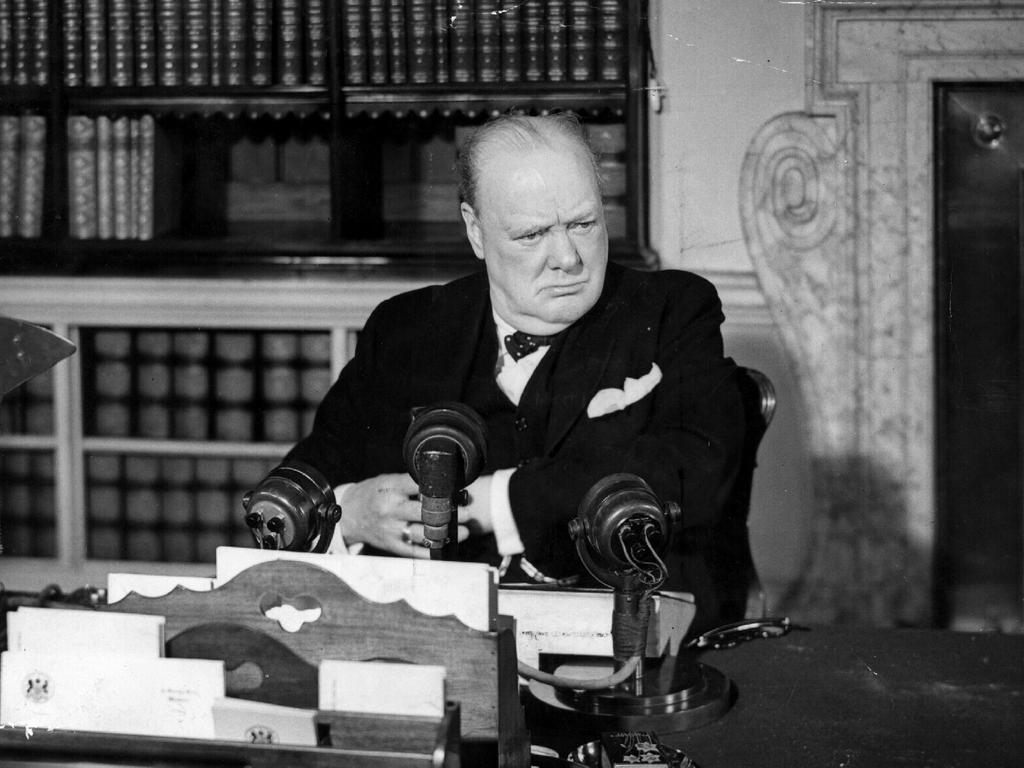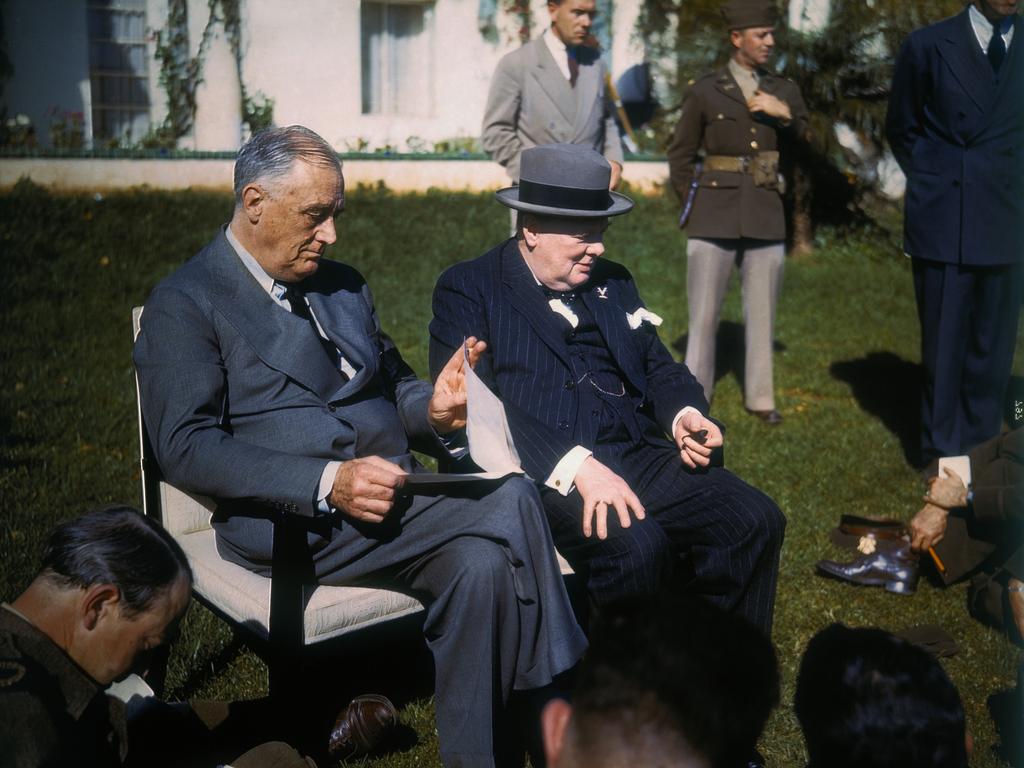
This article is more than
1 year oldA new Netflix documentary on iconic British statesman Winston Churchill and his efforts during WWII has briefly brought former US President George W. Bush back into the spotlight.
The polarising Republican, who oversaw America’s invasion of several Middle Eastern nations following 9/11, has remained somewhat quiet amid the political maelstrom of the 2020s. His time at the helm came to an end with the election of Democrat Barack Obama in 2008, with voters optimistic a push to the left would bring an end to their nation’s involvement in foreign conflicts.
Since then, Bush has mostly taken a back seat, periodically weighing in on the current political climate. Last month, he released a short statement congratulating Donald Trump on his victory and expressed hope his country would emerge from its recent political turmoil.
He has now appeared in front of the camera to comment on the exploits of Churchill in the Churchill at War series, offering up the American perspective of Britain’s greatest struggle.
Churchill is often hailed as the indispensable leader who rallied Britain and the Allied powers to victory in World War II. His unwavering defiance against Nazi Germany, stirring speeches and strategic brilliance have solidified his place in history.
However, closer examination of his leadership reveals a complex figure whose actions, while undeniably pivotal, were not without controversy and ambiguity.


Churchill’s rise to power coincided with one of Britain’s darkest hours. In May 1940, as France fell to the German onslaught, Churchill became Prime Minister, vowing to fight on “whatever the cost may be, whatever the hardship may be, we will never surrender.”
In his appearance in the documentary series, Bush commented on how Churchill’s complex family life would have generated even more pressure for the leader who was forced to make unthinkable decisions every single day.
“The world, at times, is starved for strong leaders. Churchill was a strong leader,” Bush said.“It had to be lonely,” Bush said.
“I think if you have a dysfunctional family, the pressures have got to be double.”
Bush mentioned the fact Churchill never wallowed in self-pity at the circumstances he was placed in, at least not in front of the cameras.
“One of the real problems with leadership is when you’re full of self pity.
“‘Why me? Why couldn’t this have happened under somebody else?’”
“Churchill never seemed to have that kind of self-pity.
“I don’t know about destiny. All I know is he got thrown into a difficult situation and dealt with it.”

Bush also commented on the tense situation facing Americans at the time. It was barely 20 years after the closure of WWI, and the US was fundamentally opposed to rejoining another European war.
“It wasn’t all that long before WWI that Hitler began to make his moves in Europe,” Bush continued.
“Most Americans said ‘we’re not going to do that again, that’s none of our business’.
“The people’s voice matters, and the voice was loud and clear: ‘We don’t want to be involved’
“Roosevelt had to manage that and at the same time listen to another voice that was equally as loud. And that was ‘help’.”
As news of the Nazi regime’s atrocities made its way across the pond, coupled with Japan’s expansionist aggression in the Pacific, the US was compelled to swing its military might across the globe once more.
Churchill went on to forge a crucial alliance with the United States, recognising the importance of American military might in defeating the Axis powers.

Churchill’s vision for a post-war world, which he outlined in his famous Iron Curtain speech, warned of the growing threat of Soviet expansionism, which turned out to be an accurate assessment of what would become the Cold War.
Like Bush’s, Churchill’s legacy is not without its blemishes.
His policies, particularly in India, have been heavily criticised in the decades after his death. His insistence on maintaining British colonial rule, despite growing calls for Indian independence, led to widespread unrest and violence. Additionally, his role in the Bengal famine of 1943, where millions of Indians perished, remains a controversial chapter in his history.
“Churchill hung on to imperialism as a way to keep England great, but the world was moving away from that,” Bush said in the documentary.
Some historians argue that Churchill’s focus on European affairs, particularly the war against Germany, overshadowed the plight of the Indian people. They contend that his policies exacerbated the famine by diverting food supplies to British troops and stockpiling resources for the war effort.
While his legacy is undeniably complex, it is important to acknowledge his triumphs. Several WWII scholars have claimed the outcome would have been far less favourable if Churchill had not become Britain’s leader.
He was, as many historic figures are a product of his time shaped by the attitudes and beliefs of his era and criticised long after his death for things he truly believed would benefit the world.